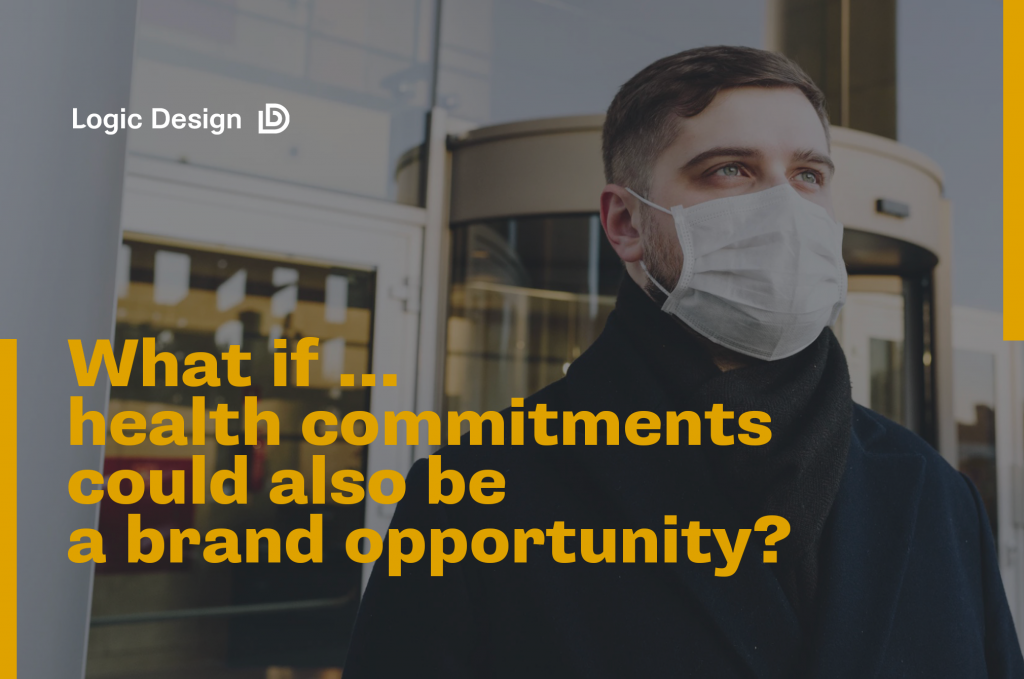It’s been a year since we’ve been dancing to the coronavirus tune.
And this pandemic has changed our life, our relationship to brands and forced us to adapt. So, you have consumers adapting their lifestyles, with brands adapting to new health and safety measures.
HEALTH CONCERNS ARE DRIVING BRAND ADAPTATIONS SO WHAT NEW OPPORTUNITIES DOES THIS PROVIDE?
The new legal framework in which health engagement initiatives operate is reminiscent of the early beginnings of CSR. Long before the “purpose brands”, long before “conscious capitalism”, the “goodvertising”, the “raison d’être” and “the reason to act”, let us remember that the CSR implemented in 2001 was within the framework of the NRE law (New Economic Regulations). It was above all , a real constraint for brands, a matter of legal obligation, responsibility and compliance.
In 15 years, CSR has fundamentally reinvented itself through the prism of the brand to go beyond this legal framework and become a creator of value for its users as well as for business (cf. Change4good). And if we could draw inspiration from this dynamic to transform legal and health constraints into brand opportunities?
Today, few brands have taken on board the health crisis. The hospitality sector which has been hit hard offers some interesting initiatives in terms of customer experience and brand identity.
1 # Disrupt to maintain the experience
One of the most used strategies is undoubtedly the awareness campaign and the promotion of health protocols. This can mean physical measures, compulsory mask wearing and alcoholic gels. Brands have approached this new legal framework in different ways. For instance, Disneyland Paris offered straightforward advice, in a benevolent light tone while emphasizing the family experience. Through the hashtag #nomagicwithoutyou, DisneyLand Paris has definitively reconnected with the brand’s emotional contract with users and the community. It plays down the protocol to make it is a natural and effective brand support…a first step.

2 # Convince to re-engage
As the surrounding rhetoric hardens on the situation’s gravity, brands can no longer just communicate on maintaining the experience with a declarative protocol. Now is the time for certification. We know the reassuring power of third-party independent certifications and their credibility with audiences. For Futuroscope, Carrefour and others AFNOR certification confirms the quality of the health measures put in place.
Jointly developed with Bureau Veritas, the Accor Group offers the proprietary #AllSafe program, its own cleanliness and prevention label. Although it’s still based around safety standards, the label goes further by ultimately enriching the overall customer experience. Indeed, thanks to the partnership with AXA,
customers can plug into the leader’s medical network and speak to health professionals whatever the language and specialisation. This, in the 110 locations where Accor are present. An initiative that would be welcomed even in a world without Covid.
Beyond the 4-star rating in the Skytrax aviation safety ranking, Air France is launching Protect an in-house program to ensure travelling is a care-free experience. Beyond the semantics around security, some initiatives still promote a more holistic well-being for passengers. It focusses on cabin air renewal every 3 minutes thanks to HEPA filters capable of capturing more than 99.9% of bacteria (filters already in place but not widely communicated to the general public). By doing this, Air France reassures by downplaying contamination with a promise of well-being and good air quality, synonymous with greater comfort. So, it’s more than just a health initiative.

# 3 Increase and multiply the experience
What about redesigning the customer experience? What if we reinvented queue waiting times? What about digitalising the experience for more user fluidity and autonomy? What about one-on-one meetings to personalize the experience? What if we took advantage of open spaces to reinvent new hybrid areas? What if we re-evaluated the role of stores? Staff and teams on site? What if we built ambitious programs beyond the notion of security and protection to offer more? These Initiatives and experiences would be capable of lasting after the crisis and from a brand perspective, the thinking is just beginning. Let’s talk about it.
Marc Beaudeaux, Strategic Planner & Kim Hartmann, Head of Strategic Planning

